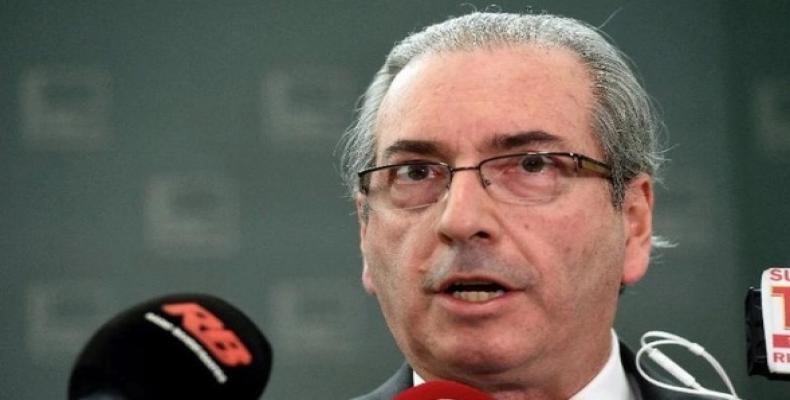Brasilia, December 4 (teleSUR-RHC)-- The Brazilian Supreme Court has rejected two appeals against the process to impeach the country’s president, Dilma Rouseff. The process was begun by Chamber of Deputies President Eduardo Cunha and other opposition representatives.
Earlier on Thursday, Cunha announced the creation of a special legislative commission, with 65 congressional representatives from 23 parties, which will be deciding whether or not Rousseff will be submitted to a political trial. If a two-thirds majority approves, it then goes to the upper house for an impeachment trial, where another two-thirds majority would force Rousseff from office.
On the request of representative Rubens Pereira Junior of the Communist Party to nullify the impeachment proceedings against the country's head of state, magistrate Fachin stated that each side will have five days to prepare their argumentation.
Pereira Junior argued that the Supreme Court didn’t have the authority to accept such a procedure without concrete evidence. He also said that the president should have been informed of content of accusations against her.
However, the court rejected a similar appeal by Wadih Damous of the governing Worker's Party, who argued that Cunha abused his power when using his position to defend personal interests.
Cunha's decision to begin impeachment proceedings is being widely interpreted as a smokescreen strategy to escape his own legal and political problems, as he is currently facing pressure to resign due to allegations that he lied to the parliamentary inquiry commission about his assets, claiming he did not have any foreign bank accounts. The government of Switzerland confirmed in October that it had frozen the bank accounts and assets of Cunha over suspected money laundering. Cunha has denied any wrongdoing.
According to Damous, Cunha's action against Rousseff was a retaliatory move against the Workers' Party, whose lawmakers announced they supported the procedure of dismissal against him.
The request to begin the impeachment process was submitted by three lawyers in October and is backed by the opposition-aligned Brazilian Social Democratic Party along with 45 other movements and parties. However, Cunha confessed then that the momentum to impeach President Dilma Rousseff had been lost and that he would not consider opening proceedings until 2016. He then changed his position. As president of the chamber, Cunha is the only Brazilian political official allowed to initiate impeachment procedures against a current president.
Brazil's Federal Accounts Court alleged in October that Rousseff's government had manipulated its accounts in 2014 to disguise a widening fiscal deficit as she campaigned for re-election.
The Federal Accounts Court is an autonomous organ of the state, but its ruling in this case is not legally binding and must be confirmed by the Brazilian congress.


